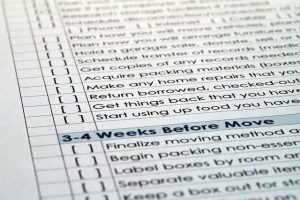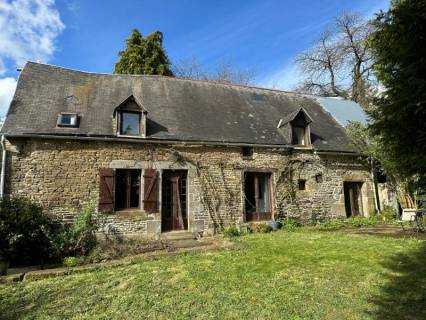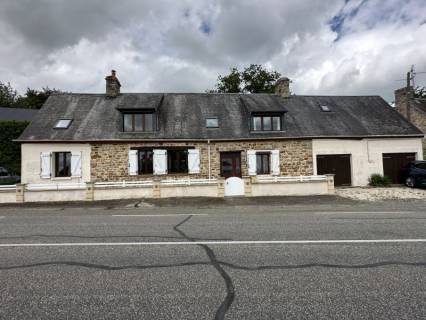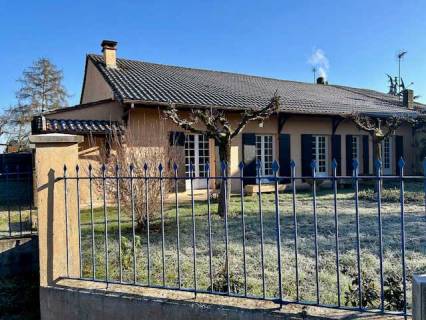Oct 122020

They say that moving house is one of the most stressful times in a person’s life, but moving house to another country is even more so. With so many things to think about it can be hard to keep track, so here’s a handy checklist of the main things you’ll need to bear in mind when you’re making your dream move to France.
Finances
One of the key things you’ll need to sort out straight away is the easiest and least inexpensive way to transfer funds. Banks usually work out quite expensive, so to ensure you get the best possible rate of exchange, particularly when transferring a large sum, such as your purchasing funds, it’s well worth exploring different currency exchange options. For more information on currency exchange, read here.
Internet & Phone
One of the first things you will need is a mobile phone and an Internet connection. Internet access is provided through either ADSL or the faster fibre-optic, depending on where you live. The four main companies that provide Internet packages (internet, phone, mobile phone and TV) are Bouygues Telecom, Free, Orange and SFR, and there are several comparison sites available online.
Utilities
Electricity in France is generally provided by the state-owned ENEDIS, formally known as EDF. Details on installing electricity or moving home relevant to residential customers, or particuliers, are available in French on the ENEDIS website.
Gas is distributed by GrdF (Gas Réseau Distribution France) who are responsible for connecting households to the network and installing any necessary equipment. The gas market is open, however, with various suppliers to choose from.
The website energie-info.fr offers a comparison service for gas and electric suppliers throughout France.
Tap water in France is generally safe to drink. The main national suppliers of domestic water in France are Veolia and Suex.
Moving Pets
If you are moving with your pet, you’ll need to make sure to obtain your pet’s passport, which will require micro-chipping and vaccinations, before you leave. Depending on how the Brexit talks go, this could take from between 21 days to four months. For more information read our article ‘Moving Pets To France’.
French School System
You’ll want to get your children set up in schools as soon as possible, and may even have chosen your location around the availability of a good school. A major difference between the French and British school systems is that private education is far less prevalent in France. While there are some fee-paying Catholic schools, the state system is well-regarded and used by people across the wealth divide, regardless of social background. For more information, read our article ‘French School System’.
Healthcare
Naturally a priority will be to enrol in the French healthcare system, widely regarded as one of the best in the world. In a nutshell, this involves choosing your own GP, or Médecin Generaliste, and registering at your local primary health insurance fund, or CPAM, to obtain insurance cover, or Sécurité Sociale, more commonly known as Sécu. CPAM will issue you a Carte Vitale, a health insurance smart card which ensures you are reimbursed for any appointments, treatments or prescriptions, usually to around 70% of the cost. To cover the remaining costs, there is a choice of private insurers to sign up with or a non-profit mutual system known as Mutuelle. For more information, read our article ‘Healthcare system in France and what might happen after Brexit’.
Learning the Language
If you want to make friends and fit in with your new community, you’ll need to start learning French
. Try to see this as an adventure, rather than a chore, and take advantage of the many language apps and podcasts, as well as the French media itself. For more ways of learning French, read our article ‘Learning French’.
Property Taxes and VAT
There are two property taxes in France, Taxe d’Habitation – which is paid by all residents, regardless of whether they own or rent, and Taxe Foncière – for property owners. For a deeper insight into these taxes, read our article ‘A Guide To French Taxes’.
French Inheritance Laws
French inheritance laws may come as a nasty surprise to the international community, who wrongly assume they can leave whatever they want to whomever they want – which is not the case. For residents in France, inheritance laws apply to all worldwide assets, except for property held abroad. For non-French residents, they apply to any property owned in France. For more information about French inheritance laws and taxes, read our article ‘The French Inheritance System’.
PACS – A Civil Union For All
If you are unmarried and wish to avoid any possible inheritance tax, French civil unions, or PACS, (Pacte Civil de Solidarité) are available to both homosexual and heterosexual couples. For more information on the advantages of entering into a PACS, and how to go about it, read our article ‘How To Enter Into A Civil Union Or PACS In France’.
The Carte de Séjour – Securing French Residency
Following Brexit, every British resident in France will need to secure a permit to stay, or Carte de Séjour. The new Carte de Séjour, issued under Article 18(1) of the Withdrawal Agreement, will prove that holders have a right of residence, and will be necessary for travel and work. To qualify, you must be living legally in France by the end of the Transition Period, currently set at 31st December 2020. For more information, read our article ‘Obtaining A Carte de Séjour Residence Permit in France’.
Working in France
Even if you don’t speak French yet, there are opportunities for finding work in France, particularly within the international community, covering a wide range of skill sets, from finance to property management or teaching. For more information on finding work in France, read here. (article July 2017)
Starting up a Business in France
If you would like to create your own business, but fear all the paperwork, don’t worry, it’s easier than you might expect, and all the procedures required to set up a small to medium-sized business can be accomplished in as little as four to five days. For more information, read our article ‘Working In France’.
Running a Gite or Holiday Rental
If you would like your home, or part of your home, to generate some income, renting it out during the holiday season can be both lucrative and fulfilling. You’ve obviously chosen to buy in an area you love, so why not share it with others? To find out how to go about setting up your holiday rental, read our article ‘Running A Gite In France’.
French Taxes
You are liable to pay taxes in France if France is your main place of residence or home – if you work abroad but your spouse and children live in France, you may still be considered a French tax resident. You are also liable if your main occupation is in France, if your most substantial assets are in France, and if you are resident in France for more than 183 days in a calendar year, not necessarily consecutively. For a more detailed look at the French tax system, read our article ‘An Overview Of French Taxes’.
Need French tax advice? Information about our partner: French Tax Online
 French Wine – You Deserve It
French Wine – You Deserve It
You’re moving to France, your to-do list is huge, and you’ve been working really hard. Why not get an understanding and appreciation of French wines, their grapes and their appellations, and better still, try some of them out for yourself. You deserve it! For an overview of some of the greatest French wines, read our article ‘An Introduction To French Wines’.











